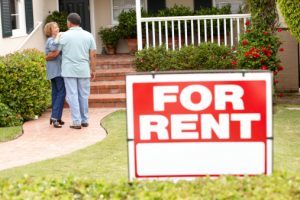 Owning a rental property can be an excellent business opportunity for many property owners, including homeowners who choose to rent out a unit in their home, or the entire home if they’re living elsewhere. In a hot rental market, it’s likely that a unit will be in constant demand, which means constant income. However, income and rental property doesn’t come without its own set of costs, and it’s important to go into property management with a clear understanding of those costs.
Owning a rental property can be an excellent business opportunity for many property owners, including homeowners who choose to rent out a unit in their home, or the entire home if they’re living elsewhere. In a hot rental market, it’s likely that a unit will be in constant demand, which means constant income. However, income and rental property doesn’t come without its own set of costs, and it’s important to go into property management with a clear understanding of those costs.
Here are a few of the costs you can expect to incur with your rental property:
- A gap in income if the property is vacant. It’s vital to have a good idea of your area’s rental market when you’re trying to keep a property filled. If a tenant decides not to renew their lease and you can’t fill the property right away, you will need to expect a break in your income. Having a budget and contingency plan in place if necessary is a good idea. While you aren’t spending money in this case, you also aren’t receiving income that you may have come to rely on, and depending on the length of the vacancy, that can have a big impact on your budget.
- Updating and cleaning. “Selling” a rental space isn’t quite the same as selling a home. While a home doesn’t necessarily need to be in tip-top shape to sell, renting out a unit that’s worn around the edges can be difficult. You should set aside a budget to refresh the space and make it attractive to potential tenants, and you should also assume that the majority of cleaning costs during turnover will fall on you, even if you ask for a security deposit. If you have a particularly poor tenant who trashes the place, the cost can be considerable. Depending on the scope, you can expect costs in the thousands.
- Maintenance and upkeep. As a landlord, maintenance issues will be your responsibility. If a tenant needs a new water heater or to have leaky plumbing fixed, that’s on you. Yard maintenance and external upkeep will also be your responsibility – you may be able to expect minimal maintenance from your tenant, but don’t bank on it. Sit down and figure out how much it will cost to maintain or replace various appliances and fixtures in the property, then factor that in to your expected costs.
- Higher taxes. If you’re living on the property you’re renting, there are often tax rules that favor such a situation. However, if the property you’re renting is an income property only, you may need to consult with a professional to determine how much you will owe in taxes.
- Insurance costs. Turning a property from a home into a rental property will change the way you’re required to insure it. Consider the cost of a special landlord policy, plus speaking to your tenants about renter’s insurance.
- Administrative and legal fees. Do you have an attorney yet? You’ll need one, and you can expect them to charge around $200 an hour for their services. Legal guidance is often necessary in order to make sure that you’re complying with all of your area’s required laws and regulations. You must also factor in the cost of running background and credit checks on tenants, as well as other administrative fees.
Property management can be very rewarding and lucrative, but you must go in with eyes wide open to the true cost of rental property and maintaining the property. If you need any help or guidance with management, tenant screening, administrative assistance, or anything else, contact PURE Property Management. Our expert staff will get you the help you need!





 Nicole Burns
Nicole Burns

 Katie O’Brien
Katie O’Brien

 Matthew Johnson
Matthew Johnson Nicki Teldeschi
Nicki Teldeschi David Carlson
David Carlson